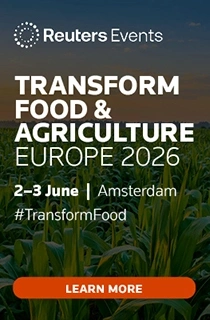
- Industry news
Industry news
- Category news
Category news
- Reports
- Key trends
- Multimedia
- Journal
- Events
- Suppliers
- Home
- Industry news
Industry news
- Category news
Category news
- Reports
- Key trends
- Multimedia
- Events
- Suppliers
UK panic buying is “stabilizing” amid pandemic, says Tesco

09 Apr 2020 --- In Tesco’s recently released COVID-19 update, the retailer flags significant extra costs incurred as a result of 45,000 new staff hires, among other pandemic-related actions. According to the supermarket, UK panic buying is “stabilizing” with “more normal” sales volumes being observed. A recent point of contention is the company’s £635 million (US$789.2 million) dividend payout, which was delivered after Tesco accepted a similarly valued tax break from the UK government’s emergency pandemic fund.
British Labour Party politician Andrew Adonis recently tweeted that it was “absolutely wrong” for Tesco to accept the business rates holiday worth £585 million (US$727.4 million), while urging that the retailer “pay back” the amount if it can afford to pay a dividend to shareholders.

“There are significant extra costs in feeding the nation at the moment but these are partially offset by the UK Business rates relief,” says Dave Lewis, Chief Executive of Tesco. “Initial panic buying has subsided and service levels are returning to normal.”
Tesco reports that COVID-19 is having a material impact on the operations of its business, leading to the incurrence of significant additional costs, particularly in payroll. The company is currently recruiting additional colleagues to meet demand and cover the work of those colleagues who are absent and being paid. More than 45,000 new team members have joined Tesco since March 20, including pickers and drivers.
“While the full financial impact of the 2020/21 crisis is impossible to predict with a high degree of certainty, we have considered a range of scenarios to understand potential outcomes on our business and plan appropriately. Dependent on the scenario, the estimated impact on our retail cost lines is between approximately £650 million [US$808.3 million] and £925 million [US$1.1 billion] including significant cost increases in payroll, distribution and store expenses,” the company details.
 According to Tesco, panic buying hasnow stabilized across the group and “more normal” sales volumes have been seen.UK panic buying is “stabilizing”
According to Tesco, panic buying hasnow stabilized across the group and “more normal” sales volumes have been seen.UK panic buying is “stabilizing”
In the first few weeks of the crisis, significant panic buying cleared the supply chain of certain items. As previously reported on FoodIngredientsFirst, leading UK food policy experts warned that Britain’s supplies of fresh fruit and vegetables, which predominantly come from Spain and Italy, could be severely disrupted by the coronavirus crisis. They also detailed how supermarkets’ move to “just-in-time” supply chains severely dented their resilience to cope during these unfavorable circumstances.
According to Tesco, these conditions have now stabilized across the group and “more normal” sales volumes have been seen. “The size and nature of our workforce means we have experienced a significant absence of colleagues. Full colleague sickness support is in place and in the last two weeks alone, we recruited more than 45,000 colleagues in the UK,” the company highlights.
During these unprecedented times, at-home delivery services around the world have seen a significant uptick in sales as governments enforce mandatory quarantine to curb the spread of the virus.
“We have already stepped up our capacity on grocery home shopping by more than 20 percent, and will continue to increase this, there is simply not enough capacity to supply the whole market,” notes Tesco.
Between 85 percent and 90 percent of all food bought will require a visit to a store, notes Tesco. This has compelled supermarkets to implement significant changes to the store environment – such as the installation of protective sneeze guards for cashiers and limiting the flow of shoppers – to maximize safety. “We will continue to try and prioritize home delivery for the most vulnerable in society as defined by the UK Government,” Tesco maintains.
The UK government has temporarily relaxed elements of competition law as part of a package of measures to allow supermarkets to work together to feed the nation amid the COVID-19 outbreak. The move allows retailers to share data with each other on stock levels, cooperate to keep shops open, or share distribution depots and delivery vans.
“The specific challenges across the group are three-fold, and most keenly felt in the UK. Firstly, the significant change in buying behavior of our customers. Secondly, the impact of the virus on our colleagues and thirdly, helping the more vulnerable in society, as defined by the UK government,” the retailer concludes.
In other COVID-19 related developments on FoodIngredientsFirst, the EU’s fresh produce association, Freshfel, is the latest industry body in a string of agri-food organizations calling out to central government for critical aid. Pandemic concerns contributed to a World Food Price dip in February.
For more of these coronavirus-related updates, readers may visit our new daily news feed entitled “COVID-19 updates,” for relevant insights needed to guide your business through this challenging period.
By Benjamin Ferrer










